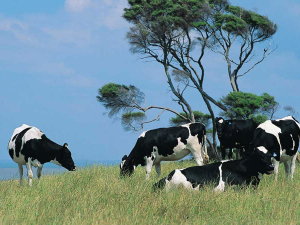Johne's test could be a major saver
Auckland-based biotechnology company Pictor Limited says it has been developing an accurate and affordable multiplexed diagnostic test for Johne's disease.
 A new test for Johne's disease is said to be more rapid and sensitive in detecting the infectious agent in Johne's disease.
A new test for Johne's disease is said to be more rapid and sensitive in detecting the infectious agent in Johne's disease.
A promising new test for Johne’s disease in dairy cattle has been developed at the Institute for Global Food Security (IGFS) and School of Biological Sciences at Queen’s University Belfast.
The new test is said to be both more rapid and sensitive in detecting the infectious agent (MAP) of Johne’s in veterinary specimens.
It is showing greater detection capability than the milk-ELISA test that is currently used. Crucially, it detects live infectious agent, not just antibodies against MAP as are detected by milk-ELISA.
In a recent study, the new test was able to detect more infected animals by milk testing than milk-ELISA, so could potentially facilitate control of Johne’s faster.
As well as bovine milk, the new test can also be applied to faeces and blood from livestock.
The test was developed by Professor Irene Grant and her post-doctoral researcher Dr Antonio Foddai at IGFS and their research was published in the open-access journal Applied Microbiology and Biotechnology. They hope to now move to the applied stage of the science with further development and validation of their test for MAP infection at farm level.
“As farmers will know, Johne’s disease is an endemic animal health issue worldwide, particularly in dairy herds,” Prof Grant says.
“It is certainly present in Northern Ireland dairy herds, but the true prevalence of Johne’s in the local context is not accurately known.”
Grant is hopeful the new test will offer more accurate, rapid and quantitative results.
“This will therefore help farmers and vets make more informed decisions about the infection status of animals in order to control the disease more effectively within herds,” she adds.
“I also hope it will generate more accurate data on the prevalence of Johne’s within Northern Ireland and therefore build a better picture of this animal-health problem.”
Rural retailer Farmlands has released it's latest round of half-year results, labeling it as evidence that its five-year strategy is delivering on financial performance and better value for members.
OPINION: "We are back to where we were a year ago," according to a leading banking analyst in the UK, referring to US president Donald Trump's latest imposition of a global 10% tariff on all exports into the US.
DairyNZ says the Government’s proposed Resource Management Act reform needs further work to ensure it delivers on its intent.
Overseas Trade Minister Todd McClay says he's working constructively with the Labour Party in the hope they will endorse the free trade agreement (FTA) with India when the agreement comes before Parliament for ratification.
Donald Trump's latest tariff tantrum has again thrown the world of trade into a new round of turmoil and uncertainty, and NZ is caught up in it.
The third edition of the NZ Dairy Expo, held in mid-February in Matamata, has shown that the KISS principle (keep it simple stupid) was getting a positive response from exhibitors and visitors alike.

OPINION: A mate of yours truly reckons rural Manawatu families are the latest to suffer under what he calls the…
OPINION: If old Winston Peters thinks building trade relations with new nations, such as India, isn't a necessary investment in…